Benefits to agriculture were widely canvassed as a reason to vote Yes at the 1972 referendum on join-ing the EU.
Agricultural prices in what was then called the Common Market were better than in the United Kingdom, previously the principal destination for farm exports. But trade unions were not so keen and there were fears that industrial employment would suffer as tariff protection was dismantled.
The national electorate went 83% for the Yes proposition and opinion polls suggest that the result would be little different today. Whatever dangers were perceived when the European option was put to the voters 50 years ago, real or imagined, were deemed unimportant then and would be shrugged aside today.
But the threat to manual jobs, flagged by the trade unions, was not imaginary: there were severe job losses after Ireland joined in 1973, eventually replaced as the structure of employment pivoted away from no-hope industries like car assembly to more promising sectors like tech and pharmaceuticals.
At the referendum, the highest Yes votes were in rural constituencies with a bigger No vote in Dublin. Some rural districts registered around 90% Yes, while Dublin constituencies, though favouring EU membership, were only at 75% or thereabouts.
The 1970s and 1980s were miserable for the blue-collar jobs market around the country and particularly in Dublin and Cork. While farm incomes grew quickly as had been expected, there were widespread closures of industries whose survival was impossible once protection against import competition was removed.
Ireland remains pro Europe
Support for EU membership has endured in Ireland despite some referendum defeats for constitutional amendments along the way. The principal explanation is that the transformation of the economy, the shift away from low-tech manufacturing and the strong investment in education and upskilling, was embraced willingly.
The UK’s decision to quit the EU was greeted with great puzzlement in Ireland, as was the form of Brexit chosen, a severe breach including exit from both the customs union and the single market. Why would an open trading economy choose to impose economic handicaps on itself? Some of the pro-Brexit campaigners even argued, at the 2016 referendum, that EU membership was a handicap for the UK economy, a proposition that would have been derided in this country where it has been seen as a remover of handicaps.
Security issues
Ireland has had choices to make in two key areas not dictated as requirements of EU membership. The first has been military neutrality – Ireland has never sought to join NATO but is not under any obligation to do so – it is not a requirement of EU membership and six of the EU’s 27 current members have chosen not to join the alliance.
The recent decision by Sweden and Finland to apply for membership leaves Ireland in a ‘neutral’ group of just four EU members, along with Austria and the small Mediterranean islands of Cyprus and Malta.
In addition to the NATO option, ruled out for practical if not very lofty reasons, there has been resistance to participation in a more active common EU security policy.
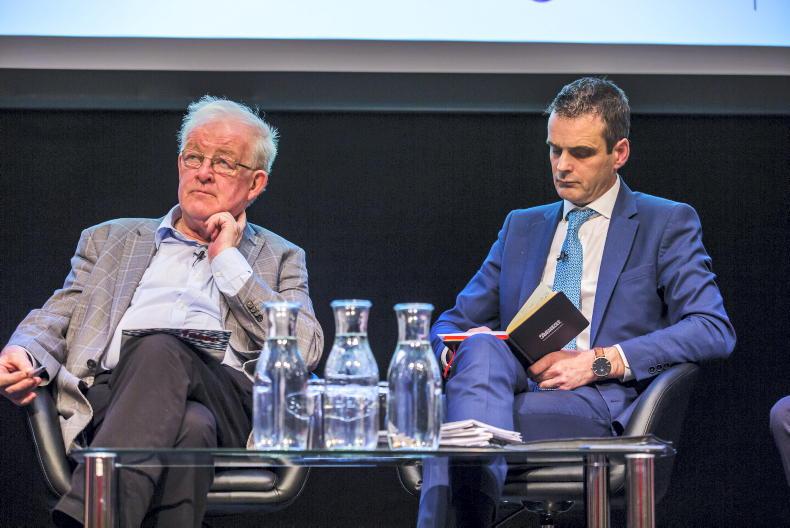
Colm McCarthy, left, and Joe Healy at the Irish Farmers Journal's Navigating Global Trade conference in the RDS, Dublin, 2019.
Located between the US and Britain, Ireland is on nobody’s list of invasion targets and would be defended by neighbours at no cost to the Irish taxpayer – why pay for a defence capability, unlikely to be adequate anyway, if geography has been kind?
To date, this has been a popular policy, but the Russian invasion of Ukraine has prompted fresh pressures about common defence of the EU and the reluctant members may have decisions to make. The Irish neutrality choice has been a non-decision, and perfectly understandable, but EU membership some-times entails going along with unpalatable common policies.
Common currency
The other choice was about the exchange rate. Membership in the eurozone common currency area is not required and eight of the bloc’s 27 members have chosen to keep their own independent currencies. These are Bulgaria, Croatia, Czech Republic, Denmark, Hungary, Poland, Romania and Sweden. Croatia is likely to join and some of the others might too.
This option was open to Ireland in the period leading up to the introduction of the euro in 1999: the Irish pound had severed the one-for-one parity with the pound sterling in 1979 and enjoyed some freedom of action in monetary policy over the subsequent 20 years.
There were several exchange rate realignments in the system of adjustable parities between European currencies which operated for two decades and there was some degree of domestic autonomy on interest rates.
When a single common currency was proposed the UK had opted out, long before Brexit loomed, and Ireland could have done the same.
The decision to scrap the exchange rate altogether had consequences. There could be no more exchange rate adjustments and no control over the general level of interest rates.
The decision to abolish the independent Irish currency attracted opposition from some economists, fearful that a weak sterling would make exports uncompetitive and would have to be passively endured.
Sterling strengthened but competitiveness was undermined regardless
As things transpired there was a problem with eurozone membership, but it was a very different one.
Sterling strengthened but competitiveness was undermined regardless.
Failures in public expenditure control and in bank management and supervision led to a system-wide banking bust and financial collapse in the autumn of 2008.
The result was State insolvency, a bailout of bank creditors and a general election in 2011 which overturned the party-political order.
It is now acknowledged, but too late for Ireland, that there were serious design flaws in a common currency, which was not suited to a full monetary union.
There was no joint responsibility for things like fixing insolvent banks, undertaken at federal level in the US. Each country was left to fend for itself, and the Irish bank guarantee of 2008 meant that undeserving creditors were made whole by the Irish Exchequer.
Some of these were French and German institutions which made unwise investments in Anglo and other failing Irish banks. Had the Irish Exchequer been less generous, they would have needed support from the French and German governments, so Ireland (unknowingly and unthanked) took one for the team so to speak.
The eurozone structure has since been improved, the bank supervision task is more centralised and Ireland has strengthened the oversight capability at the Central Bank of Ireland. The risk of another banking bust has been reduced sharply.
Farming has been transformed
While farming employs only about half the numbers registered in the years immediately prior to EU accession, the sector has been transformed and has been a principal beneficiary of the decision it supported so strongly at the 1972 referendum. But the non-farm economy, once the shakeout in traditional industries had played out, has also prospered.
Had Ireland stayed outside the European Union, it is difficult to imagine that the economic progress of the independent State’s second half-century would have unfolded.
Now a net contributor
Ireland’s relationship with the European Union has already become a two-way street.
No longer one of the poorest members, reflecting both Irish economic growth but also the accession of less developed countries in central and eastern Europe with possibly more to come, Ireland is a net contributor to the EU budget and the annual cost to the Exchequer could rise further in the years ahead.
Anti-EU sentiment in the United Kingdom at the time of the 2016 Brexit referendum was propelled largely by two issues, concern about inward migration and the annual cost to the UK Treasury of EU membership.
Immigration to Ireland from elsewhere in the EU has in fact been on a larger scale, relative to population or labour force, than in Britain and the immigration issue in the UK became entwined with that country’s challenges in absorbing immigrants from former imperial possessions outside Europe.
This challenge it shares with France and the other imperial metropoles, while Ireland relinquished control of its last colony, the Isle of Man, to the Vikings around 1,200 years ago.
One happy result has been the absence from Ireland of an anti-immigration strand in national politics, despite the dysfunctional housing policy and pressure on house prices and rents.
The EU budget issue could prove more difficult to manage – the EU redistributes resources, on a modest but transparent scale, from the richer to the poorer member states.
While the extent of transfers from the UK to Brussels was exaggerated by the Brexiteers at the time, it was not envisaged that the Irish public needs to be persuaded that this expenditure is a good bargain for countries that benefit from access to the most open market in the world.
A more immediate issue will be defence and security. It is clear that the western European countries intend to spend more on military preparedness and to coordinate their policies through the EU as well as through the North Atlantic Treaty Organisation.
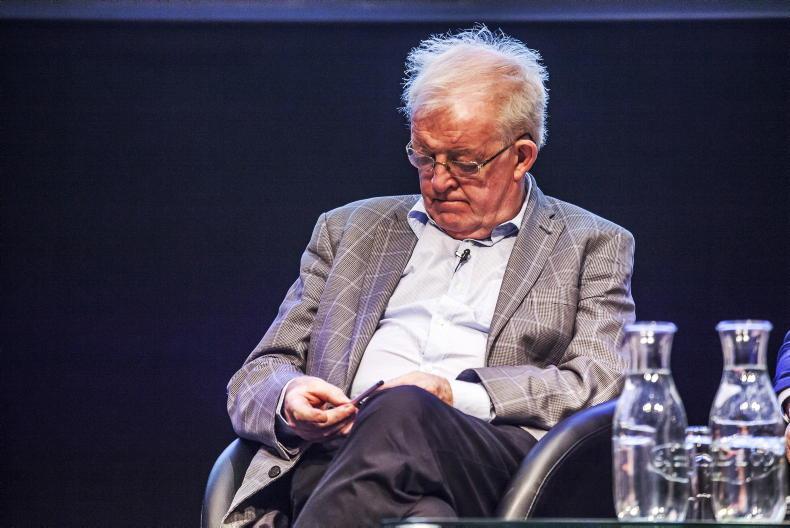
Colm McCarthy at the Irish Farmers Journals Navigating Global Trade conference in the RDS, Dublin, 2019.
With Sweden and Finland about to join NATO, Ireland will be left in a dwindling club of EU states outside the NATO umbrella, which has extended over Europe throughout the Cold War courtesy of American taxpayers.
The ‘neutral’ club will then consist of Austria, Ireland and two small islands in the Mediterranean, Cyprus and Malta. The remaining 23 EU members will all be NATO members too, and some of the applicant countries have already joined.
The ‘neutral’ club could become uncomfortable and Irish ministers may be asked what contribution to European security does Ireland propose to offer.
Cyprus, though avowedly against NATO membership, hosts a permanent UK naval base on the eastern Mediterranean island, as well as a sizeable Russian population, including oligarchs.
Austria is constrained by the 1955 neutrality declaration which saw the withdrawal of the occupying allied forces, including the Red Army.
Austria, from 1938 a part of the German Reich, had been defeated and occupied at the end of World War II. The 1955 neutrality declaration is now part of the Austrian constitution and two-thirds of parliament would need to support a change, not popular with the public despite the invasion of Ukraine.
Austria may stay out of NATO but will face pressure to do more in support of an emerging EU security and defence policy. So will Ireland, which has enjoyed low defence expenditures down the years, reflecting the absence of military threat from neighbours and the free umbrella of NATO.
The Irish armed forces have been lobbying for increased defence expenditure including a fleet of warplanes for the Air Corps and extra ships for the Naval Service.
A cheaper option might be the Cypriot solution: stay out of NATO, keep defence expenditure low, offer some bases to friendly EU countries and enjoy the free umbrella.
Ireland’s entry to the EEC was heavily supported nationally but more so in rural than in urban areas.Agriculture benefited but blue-collar industry jobs suffered for a while.Currency issues were important for many years, but these were resolved for most by the introduction of the common currency. We have now become a net contributor to the EU budget and renewed EU interest in its defence capability could again see national/EU defence emerge as a real issue.
Benefits to agriculture were widely canvassed as a reason to vote Yes at the 1972 referendum on join-ing the EU.
Agricultural prices in what was then called the Common Market were better than in the United Kingdom, previously the principal destination for farm exports. But trade unions were not so keen and there were fears that industrial employment would suffer as tariff protection was dismantled.
The national electorate went 83% for the Yes proposition and opinion polls suggest that the result would be little different today. Whatever dangers were perceived when the European option was put to the voters 50 years ago, real or imagined, were deemed unimportant then and would be shrugged aside today.
But the threat to manual jobs, flagged by the trade unions, was not imaginary: there were severe job losses after Ireland joined in 1973, eventually replaced as the structure of employment pivoted away from no-hope industries like car assembly to more promising sectors like tech and pharmaceuticals.
At the referendum, the highest Yes votes were in rural constituencies with a bigger No vote in Dublin. Some rural districts registered around 90% Yes, while Dublin constituencies, though favouring EU membership, were only at 75% or thereabouts.
The 1970s and 1980s were miserable for the blue-collar jobs market around the country and particularly in Dublin and Cork. While farm incomes grew quickly as had been expected, there were widespread closures of industries whose survival was impossible once protection against import competition was removed.
Ireland remains pro Europe
Support for EU membership has endured in Ireland despite some referendum defeats for constitutional amendments along the way. The principal explanation is that the transformation of the economy, the shift away from low-tech manufacturing and the strong investment in education and upskilling, was embraced willingly.
The UK’s decision to quit the EU was greeted with great puzzlement in Ireland, as was the form of Brexit chosen, a severe breach including exit from both the customs union and the single market. Why would an open trading economy choose to impose economic handicaps on itself? Some of the pro-Brexit campaigners even argued, at the 2016 referendum, that EU membership was a handicap for the UK economy, a proposition that would have been derided in this country where it has been seen as a remover of handicaps.
Security issues
Ireland has had choices to make in two key areas not dictated as requirements of EU membership. The first has been military neutrality – Ireland has never sought to join NATO but is not under any obligation to do so – it is not a requirement of EU membership and six of the EU’s 27 current members have chosen not to join the alliance.
The recent decision by Sweden and Finland to apply for membership leaves Ireland in a ‘neutral’ group of just four EU members, along with Austria and the small Mediterranean islands of Cyprus and Malta.
In addition to the NATO option, ruled out for practical if not very lofty reasons, there has been resistance to participation in a more active common EU security policy.

Colm McCarthy, left, and Joe Healy at the Irish Farmers Journal's Navigating Global Trade conference in the RDS, Dublin, 2019.
Located between the US and Britain, Ireland is on nobody’s list of invasion targets and would be defended by neighbours at no cost to the Irish taxpayer – why pay for a defence capability, unlikely to be adequate anyway, if geography has been kind?
To date, this has been a popular policy, but the Russian invasion of Ukraine has prompted fresh pressures about common defence of the EU and the reluctant members may have decisions to make. The Irish neutrality choice has been a non-decision, and perfectly understandable, but EU membership some-times entails going along with unpalatable common policies.
Common currency
The other choice was about the exchange rate. Membership in the eurozone common currency area is not required and eight of the bloc’s 27 members have chosen to keep their own independent currencies. These are Bulgaria, Croatia, Czech Republic, Denmark, Hungary, Poland, Romania and Sweden. Croatia is likely to join and some of the others might too.
This option was open to Ireland in the period leading up to the introduction of the euro in 1999: the Irish pound had severed the one-for-one parity with the pound sterling in 1979 and enjoyed some freedom of action in monetary policy over the subsequent 20 years.
There were several exchange rate realignments in the system of adjustable parities between European currencies which operated for two decades and there was some degree of domestic autonomy on interest rates.
When a single common currency was proposed the UK had opted out, long before Brexit loomed, and Ireland could have done the same.
The decision to scrap the exchange rate altogether had consequences. There could be no more exchange rate adjustments and no control over the general level of interest rates.
The decision to abolish the independent Irish currency attracted opposition from some economists, fearful that a weak sterling would make exports uncompetitive and would have to be passively endured.
Sterling strengthened but competitiveness was undermined regardless
As things transpired there was a problem with eurozone membership, but it was a very different one.
Sterling strengthened but competitiveness was undermined regardless.
Failures in public expenditure control and in bank management and supervision led to a system-wide banking bust and financial collapse in the autumn of 2008.
The result was State insolvency, a bailout of bank creditors and a general election in 2011 which overturned the party-political order.
It is now acknowledged, but too late for Ireland, that there were serious design flaws in a common currency, which was not suited to a full monetary union.
There was no joint responsibility for things like fixing insolvent banks, undertaken at federal level in the US. Each country was left to fend for itself, and the Irish bank guarantee of 2008 meant that undeserving creditors were made whole by the Irish Exchequer.
Some of these were French and German institutions which made unwise investments in Anglo and other failing Irish banks. Had the Irish Exchequer been less generous, they would have needed support from the French and German governments, so Ireland (unknowingly and unthanked) took one for the team so to speak.
The eurozone structure has since been improved, the bank supervision task is more centralised and Ireland has strengthened the oversight capability at the Central Bank of Ireland. The risk of another banking bust has been reduced sharply.
Farming has been transformed
While farming employs only about half the numbers registered in the years immediately prior to EU accession, the sector has been transformed and has been a principal beneficiary of the decision it supported so strongly at the 1972 referendum. But the non-farm economy, once the shakeout in traditional industries had played out, has also prospered.
Had Ireland stayed outside the European Union, it is difficult to imagine that the economic progress of the independent State’s second half-century would have unfolded.
Now a net contributor
Ireland’s relationship with the European Union has already become a two-way street.
No longer one of the poorest members, reflecting both Irish economic growth but also the accession of less developed countries in central and eastern Europe with possibly more to come, Ireland is a net contributor to the EU budget and the annual cost to the Exchequer could rise further in the years ahead.
Anti-EU sentiment in the United Kingdom at the time of the 2016 Brexit referendum was propelled largely by two issues, concern about inward migration and the annual cost to the UK Treasury of EU membership.
Immigration to Ireland from elsewhere in the EU has in fact been on a larger scale, relative to population or labour force, than in Britain and the immigration issue in the UK became entwined with that country’s challenges in absorbing immigrants from former imperial possessions outside Europe.
This challenge it shares with France and the other imperial metropoles, while Ireland relinquished control of its last colony, the Isle of Man, to the Vikings around 1,200 years ago.
One happy result has been the absence from Ireland of an anti-immigration strand in national politics, despite the dysfunctional housing policy and pressure on house prices and rents.
The EU budget issue could prove more difficult to manage – the EU redistributes resources, on a modest but transparent scale, from the richer to the poorer member states.
While the extent of transfers from the UK to Brussels was exaggerated by the Brexiteers at the time, it was not envisaged that the Irish public needs to be persuaded that this expenditure is a good bargain for countries that benefit from access to the most open market in the world.
A more immediate issue will be defence and security. It is clear that the western European countries intend to spend more on military preparedness and to coordinate their policies through the EU as well as through the North Atlantic Treaty Organisation.

Colm McCarthy at the Irish Farmers Journals Navigating Global Trade conference in the RDS, Dublin, 2019.
With Sweden and Finland about to join NATO, Ireland will be left in a dwindling club of EU states outside the NATO umbrella, which has extended over Europe throughout the Cold War courtesy of American taxpayers.
The ‘neutral’ club will then consist of Austria, Ireland and two small islands in the Mediterranean, Cyprus and Malta. The remaining 23 EU members will all be NATO members too, and some of the applicant countries have already joined.
The ‘neutral’ club could become uncomfortable and Irish ministers may be asked what contribution to European security does Ireland propose to offer.
Cyprus, though avowedly against NATO membership, hosts a permanent UK naval base on the eastern Mediterranean island, as well as a sizeable Russian population, including oligarchs.
Austria is constrained by the 1955 neutrality declaration which saw the withdrawal of the occupying allied forces, including the Red Army.
Austria, from 1938 a part of the German Reich, had been defeated and occupied at the end of World War II. The 1955 neutrality declaration is now part of the Austrian constitution and two-thirds of parliament would need to support a change, not popular with the public despite the invasion of Ukraine.
Austria may stay out of NATO but will face pressure to do more in support of an emerging EU security and defence policy. So will Ireland, which has enjoyed low defence expenditures down the years, reflecting the absence of military threat from neighbours and the free umbrella of NATO.
The Irish armed forces have been lobbying for increased defence expenditure including a fleet of warplanes for the Air Corps and extra ships for the Naval Service.
A cheaper option might be the Cypriot solution: stay out of NATO, keep defence expenditure low, offer some bases to friendly EU countries and enjoy the free umbrella.
Ireland’s entry to the EEC was heavily supported nationally but more so in rural than in urban areas.Agriculture benefited but blue-collar industry jobs suffered for a while.Currency issues were important for many years, but these were resolved for most by the introduction of the common currency. We have now become a net contributor to the EU budget and renewed EU interest in its defence capability could again see national/EU defence emerge as a real issue. 




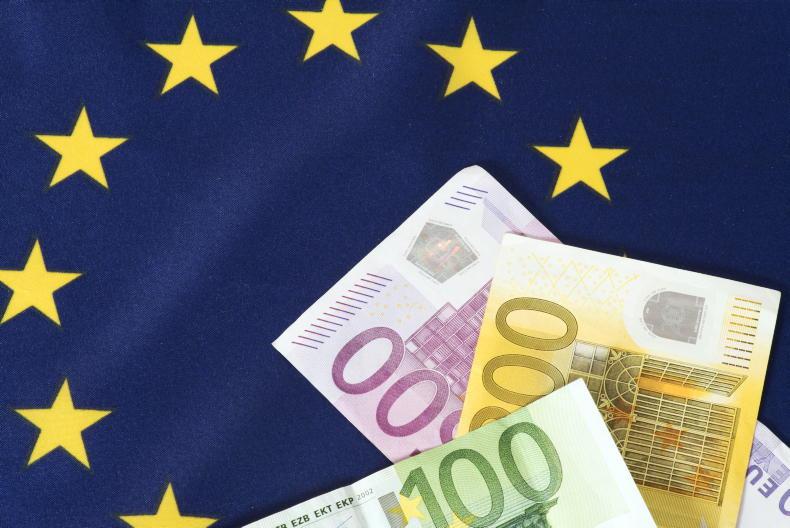

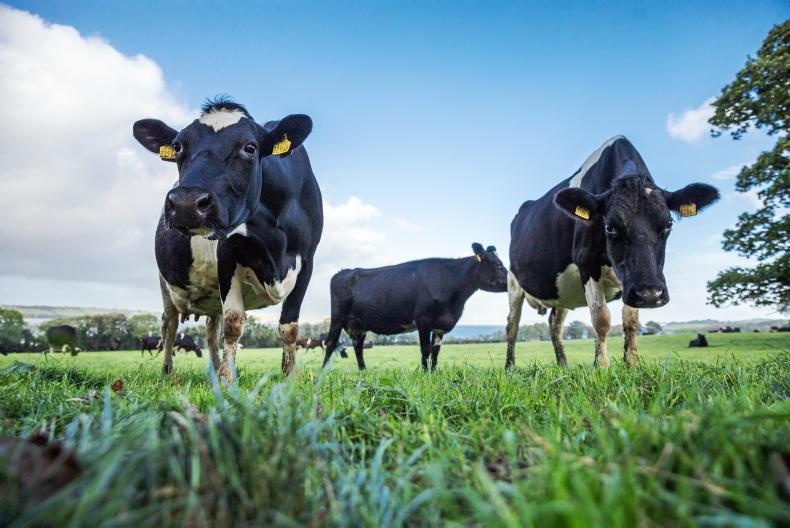

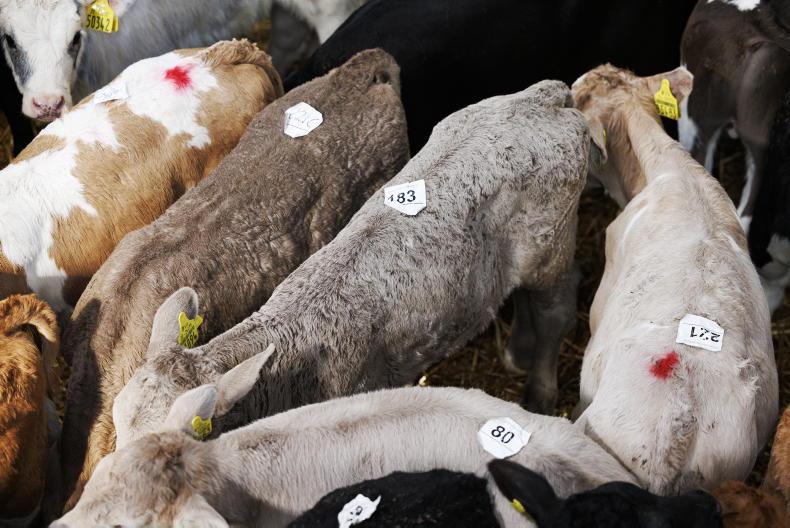
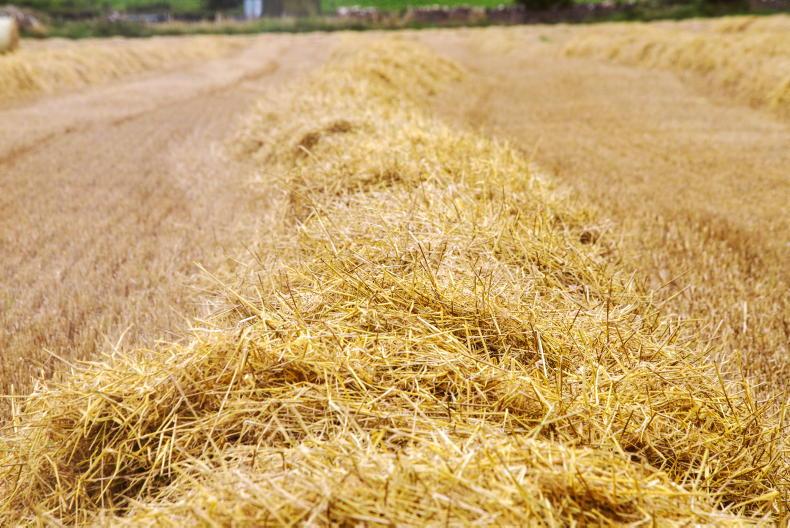
SHARING OPTIONS